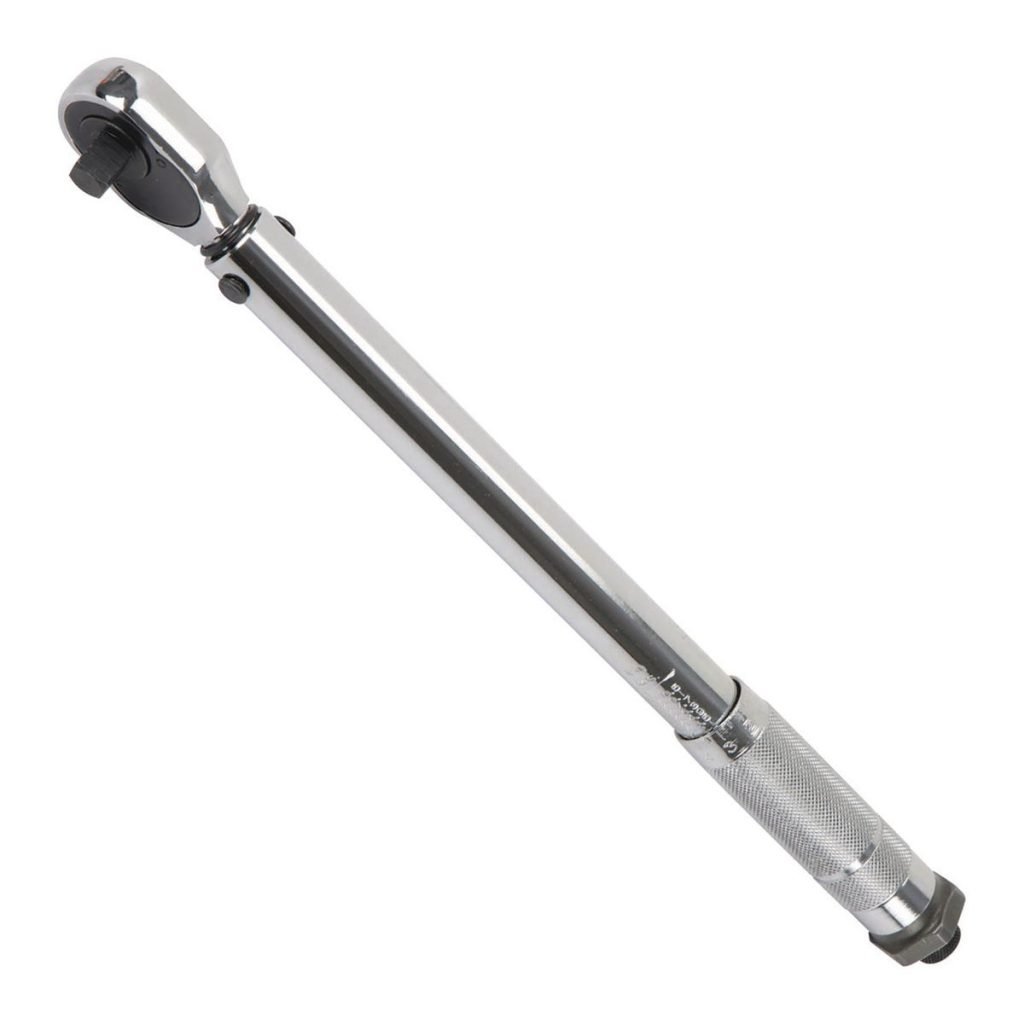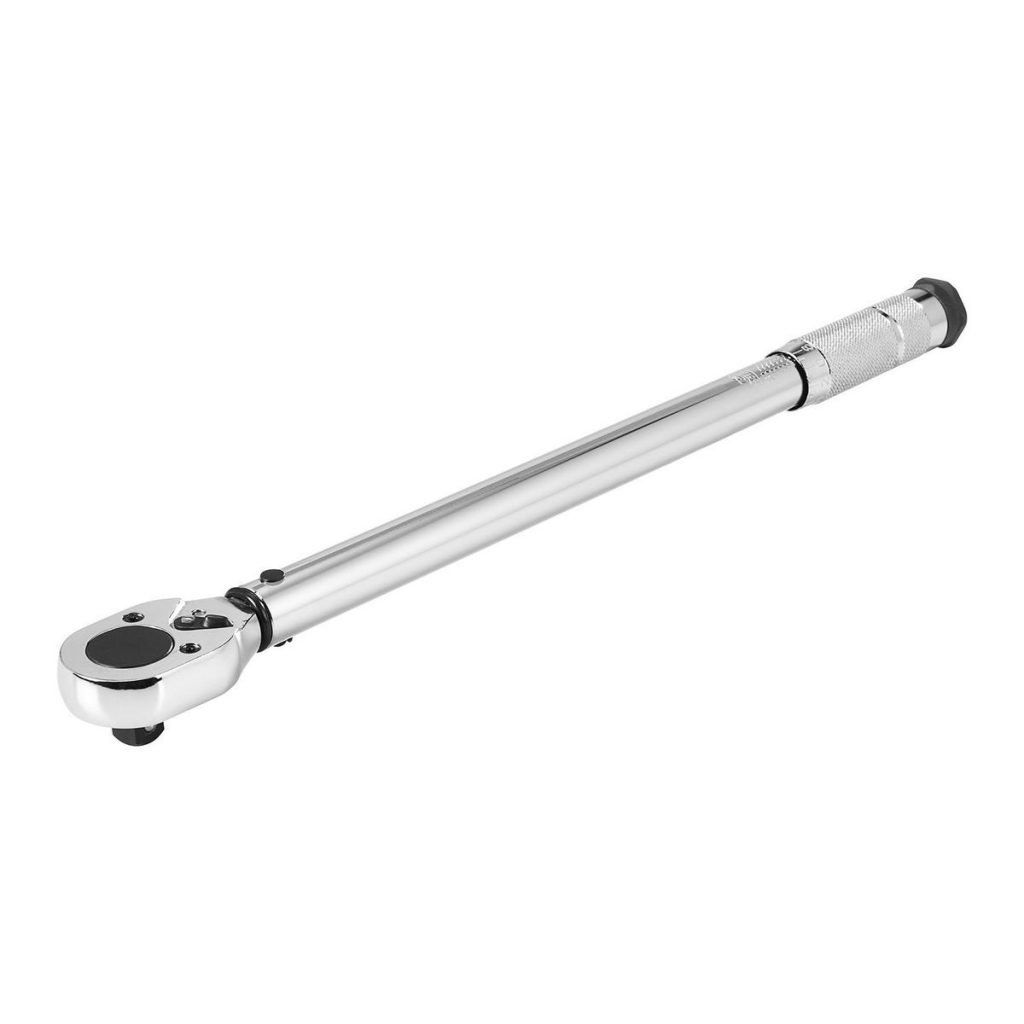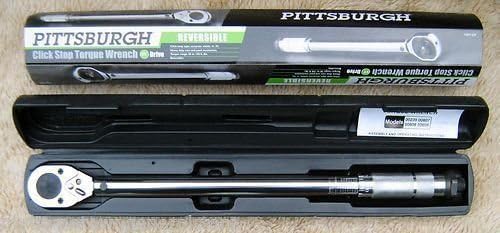To use a Pittsburgh torque wrench, set the desired torque value and tighten the fastener until it clicks. The click signals the correct torque has been reached.
A Pittsburgh torque wrench is a crucial tool for precision tightening in various mechanical tasks. This versatile tool ensures that bolts and nuts are tightened to specific torque specifications, preventing over-tightening or under-tightening.
Proper use of a torque wrench enhances safety and prolongs the lifespan of mechanical components.
Always refer to the manufacturer’s guidelines for correct torque values. Regular calibration and maintenance of the torque wrench are essential for accurate readings.
Whether you’re working on automotive repairs or assembly projects, a Pittsburgh torque wrench is a reliable companion for achieving precise torque settings.

Credit: www.harborfreight.com
Choosing The Right Pittsburgh Torque Wrench
Picking the correct Pittsburgh torque wrench is essential. It ensures accurate tightening of bolts and nuts. This section will guide you in making the right choice.
Understanding Torque Requirements
To select the right torque wrench, first, understand torque requirements. Torque is the force needed to turn an object. Use the manufacturer’s guidelines to know the torque specifications.
Consider these factors:
- Material type
- Size of the bolt or nut
- Application type
Types Of Pittsburgh Torque Wrenches
Pittsburgh offers various types of torque wrenches. Each type has unique features and uses.
Here are the main types:
| Type | Features | Uses |
|---|---|---|
| Click Type | Audible click sound | General use |
| Beam Type | Simple design | Low precision tasks |
| Dial Type | Dial gauge | High precision tasks |
| Electronic Type | Digital display | High-tech applications |
Choosing the right type depends on your specific needs.
Click type is perfect for most DIY tasks.
Beam type is ideal for straightforward jobs.
Dial type offers great precision.
Electronic type is best for advanced projects.

Credit: utvactionmag.com
Setting Up Your Pittsburgh Torque Wrench
Setting up your Pittsburgh Torque Wrench is crucial for accurate torque measurements. Follow these steps to ensure your wrench is properly calibrated and adjusted.
Calibrating The Wrench
Calibration ensures your torque wrench provides accurate readings. A miscalibrated wrench can lead to incorrect torque settings and damage to bolts or machinery.
- Check the calibration date on your wrench. It should be calibrated annually.
- Use a certified calibration tool to test the wrench’s accuracy.
- Adjust the wrench according to the tool’s instructions until it reads accurately.
Adjusting The Torque Settings
Properly adjusting the torque settings is essential for precise torque application.
- Locate the torque adjustment knob on your wrench.
- Turn the knob to set the desired torque level.
- Refer to the wrench’s manual for specific torque settings for different applications.
Always double-check the settings before use to ensure accuracy.
Using The Pittsburgh Torque Wrench Safely
Using the Pittsburgh Torque Wrench safely ensures your project’s success. It also keeps you safe from injuries. Follow these guidelines to handle the tool properly.
Proper Grip And Technique
Hold the wrench with a firm grip. Make sure your hands are dry and clean. Position your hand in the middle of the handle.
- Use both hands for better control.
- Keep your wrists straight.
- Stand steady with feet shoulder-width apart.
Apply pressure smoothly and steadily. Avoid sudden movements. This helps in achieving the correct torque.
Avoiding Over-torquing
Over-torquing can damage bolts and threads. Always set the correct torque value.
- Check the manufacturer’s specifications.
- Set the torque wrench to the recommended value.
- Listen for the click sound or feel the wrench’s resistance.
Stop applying force once the wrench clicks. Do not exceed the set torque value. This prevents over-torquing and ensures safety.
Common Mistakes To Avoid
Using a Pittsburgh Torque Wrench correctly ensures accuracy and safety. But many users make common mistakes. Avoiding these mistakes can prolong the life of your tool and ensure precise results.
Not Checking Calibration Regularly
Calibration ensures your torque wrench provides accurate readings. Ignoring calibration can lead to inaccurate torque application. This can cause damage to parts or even injury.
Check the calibration of your torque wrench every six months. If you use it daily, check it every three months. Use a professional service for calibration. It’s worth the investment.
Signs your wrench needs calibration include:
- Inconsistent torque readings
- Excessive wear and tear
- Mechanical issues or damage
Ignoring Manufacturer’s Instructions
Every torque wrench comes with manufacturer’s instructions. These guidelines are crucial for proper use. Ignoring these instructions can result in improper torque application.
Key points to follow from the manufacturer’s instructions:
- Proper storage methods
- Recommended calibration frequency
- Specific usage limits
Always read and understand the manual before using your torque wrench. Failure to follow these instructions can void warranties and lead to tool failure.
Using the Pittsburgh Torque Wrench correctly avoids common mistakes. This ensures the tool’s longevity and your safety.
Maintenance Tips For Your Pittsburgh Torque Wrench
Proper maintenance of your Pittsburgh torque wrench ensures accuracy and longevity. Follow these maintenance tips to keep your wrench in top shape.
Cleaning And Storage
Regular cleaning prevents dirt buildup on your torque wrench. Use a clean cloth to wipe it after each use. Avoid using water or harsh chemicals.
Store your torque wrench in a dry place. Humidity can damage the internal components. Consider using a toolbox with a padded interior for extra protection.
Always reset the wrench to its lowest setting after use. This prevents unnecessary stress on the internal spring.
Regular Inspection
Inspect your torque wrench before each use. Check for visible signs of wear or damage.
Ensure all moving parts function smoothly. If any part feels stiff, it may need lubrication.
Verify the calibration periodically using a calibration tool. An uncalibrated wrench can give inaccurate readings.
If you notice any issues during inspection, consult a professional for repair.
| Maintenance Task | Frequency |
|---|---|
| Cleaning | After each use |
| Storage | Always |
| Inspection | Before each use |
| Calibration | Every 6 months |

Credit: www.amazon.com
Advanced Techniques For Precision
Using a Pittsburgh Torque Wrench requires skill and precision. Mastering advanced techniques ensures accurate results. Focus on consistency and accuracy. Let’s dive into the specifics.
Using Torque Wrench For Critical Applications
For critical applications, every detail matters. Follow these steps:
- Ensure the wrench is calibrated. Check the calibration date.
- Select the correct setting. Refer to the manufacturer’s guidelines.
- Apply steady pressure. Avoid sudden movements.
- Listen for the click. This indicates the correct torque.
Critical applications include engine assembly, aerospace components, and precision machinery. Accuracy is vital in these fields. Double-check your work to avoid errors.
Tips For Consistent Accuracy
Consistent accuracy is key to using a torque wrench effectively. Here are some tips:
- Store the wrench properly. Keep it in a protective case.
- Clean the wrench after use. Remove any debris or oil.
- Use smooth, controlled movements. Avoid jerky actions.
- Check settings before each use. Ensure the correct torque value.
These practices help maintain the wrench’s accuracy. Regular maintenance extends its lifespan.
Troubleshooting
Using a Pittsburgh Torque Wrench can be easy. But sometimes, you might face issues. This section helps solve common problems. You’ll also find answers to FAQs.
Dealing With Calibration Issues
Calibration ensures your wrench works right. If your wrench is off, follow these steps:
- Check the manual for calibration instructions.
- Use a calibration tool if needed.
- Adjust the wrench according to the manual.
- Test the wrench on a known torque value.
- Repeat steps if the torque is not accurate.
Still facing issues? Contact customer support.
Answers To Common User Queries
Here are some common questions users ask:
| Question | Answer |
|---|---|
| How often should I calibrate? | Calibrate every 6 months or after 5,000 uses. |
| Can I use the wrench on different bolts? | Yes, but ensure the torque setting is correct. |
| What if the wrench slips? | Check for wear and tear. Replace if needed. |
| How do I store the wrench? | Store in a dry place. Keep it clean and free from dust. |
If you have more questions, consult the user manual or reach out to support.
Frequently Asked Questions
- What Is A Pittsburgh Torque Wrench?
A Pittsburgh Torque Wrench is a precision tool used to apply specific torque to fasteners.
- How To Set Torque On Pittsburgh Wrench?
Turn the handle to adjust the torque setting to the desired value.
- How To Use A Pittsburgh Torque Wrench?
Tighten the fastener until the wrench clicks, indicating the set torque is reached.
- Why Calibrate A Pittsburgh Torque Wrench?
Calibration ensures accuracy and maintains the wrench’s effectiveness for precise torque application.
- How To Maintain A Pittsburgh Torque Wrench?
Store in a dry place, avoid dropping, and regularly check calibration for consistent performance.
Conclusion
Mastering the use of a Pittsburgh torque wrench ensures precise and safe tightening. Regular practice enhances accuracy. Always follow manufacturer guidelines for optimal performance.
By using the tool correctly, you extend its lifespan and ensure reliable results. Happy wrenching!
